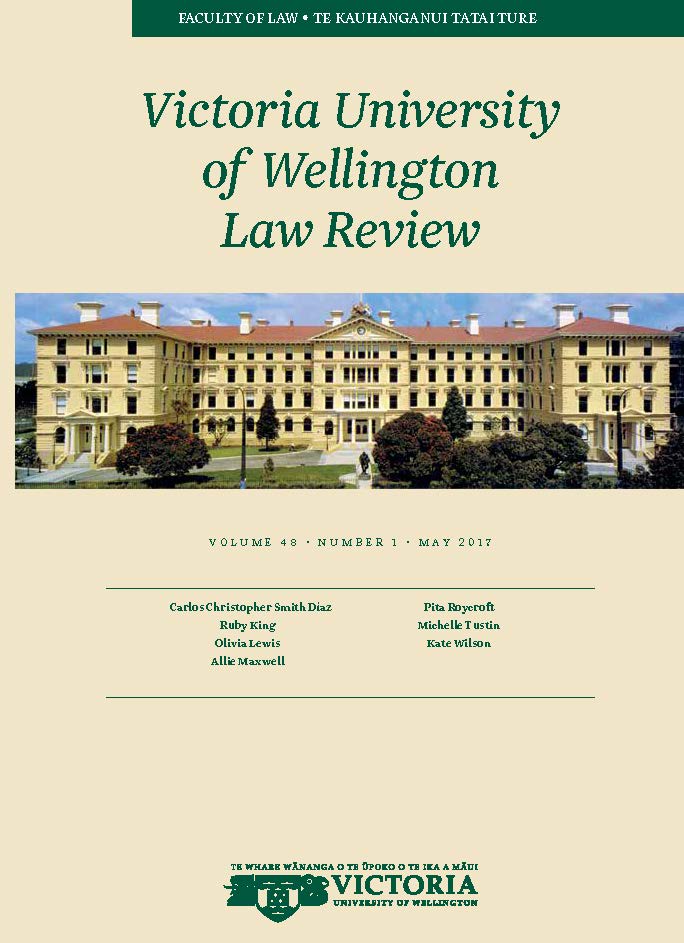Wilkinson v Downton After Rhodes and its Future Viability in New Zealand
DOI:
https://doi.org/10.26686/vuwlr.v48i1.4767Abstract
This article analyses the tort in Wilkinson v Downton, commonly referred to as intentional infliction of emotional distress, in light of the United Kingdom Supreme Court's decision in Rhodes v OPO. After considering the three base elements of the Rhodes Court's newly reformulated tort, and giving a brief introduction to the New Zealand equivalent, the article suggests the law in this area is in need of further clarification and reform. The Rhodes formulation, while useful, does not go far enough in securing a viable future for the tort in light of the developments in negligence and privacy. The article justifies the tort's independence and suggests reforms to its elements in this respect. In particular, it concludes that the conduct element ought to be based on a "reasonable target" test, and the consequence element ought to be modified to allow recovery for damage amounting to severe emotional distress outside the range of ordinary human experience.
Downloads
Downloads
Published
How to Cite
Issue
Section
License
Authors retain copyright in their work published in the Victoria University of Wellington Law Review.


